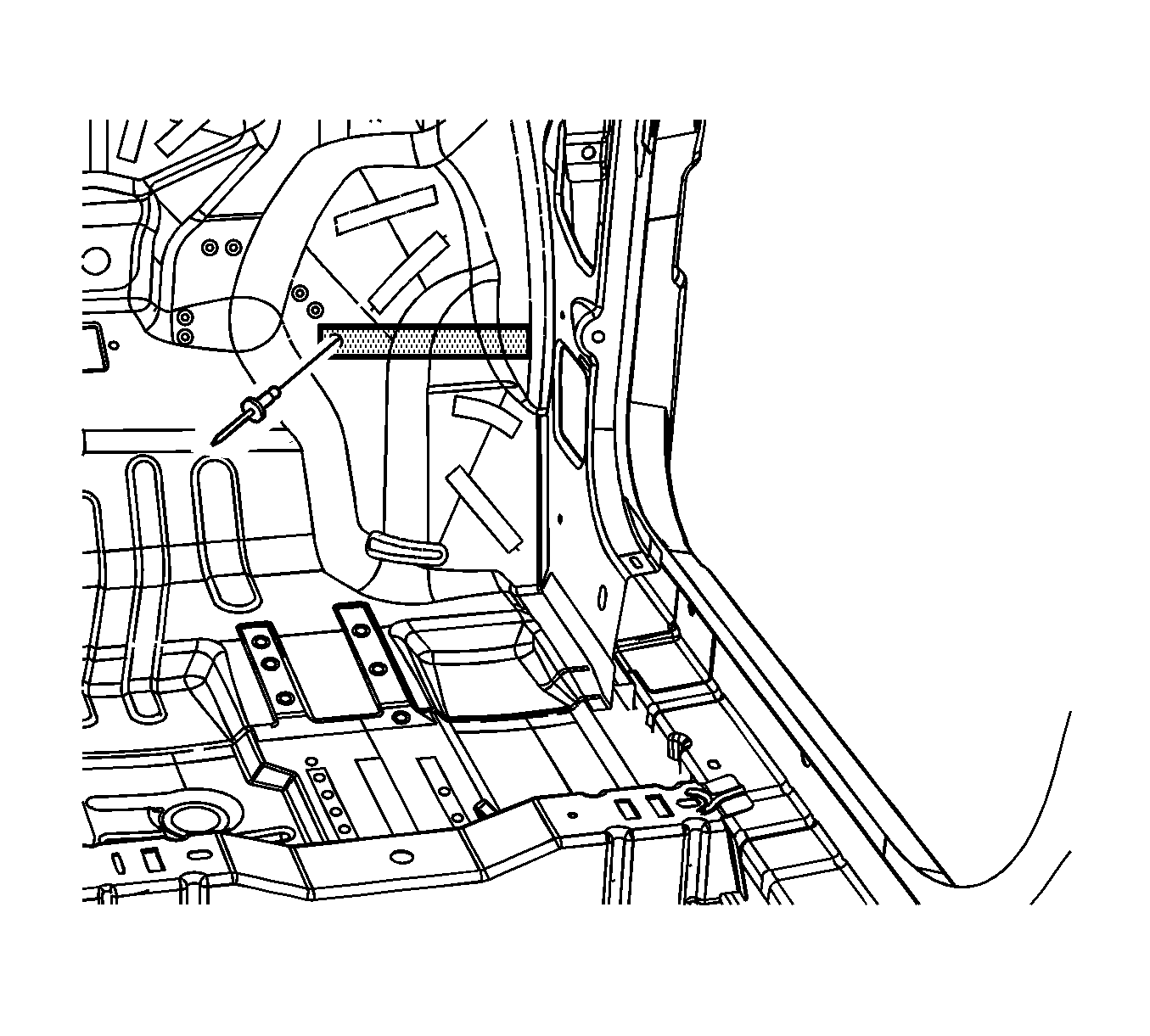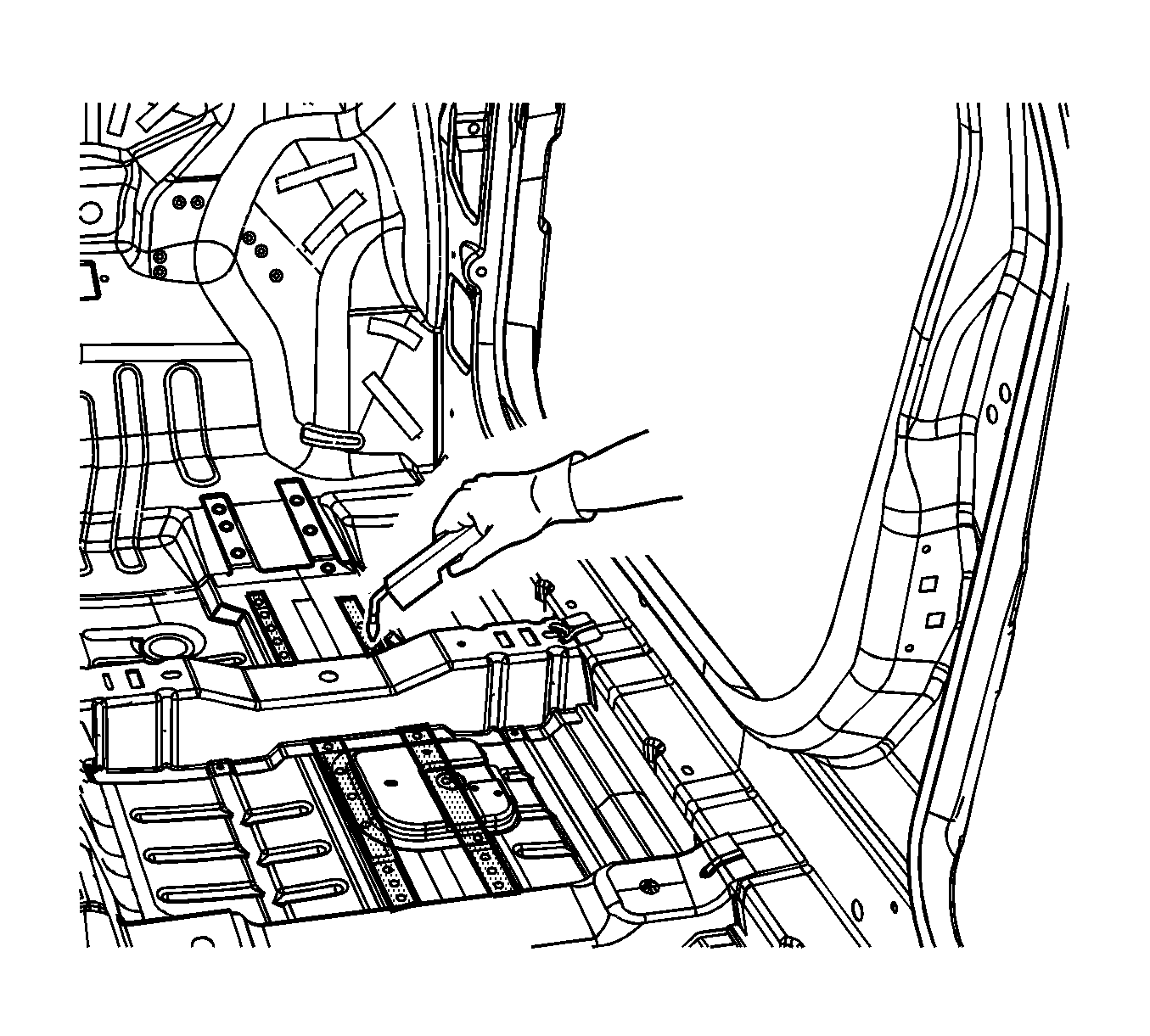Front Compartment Front Rail Sectioning Steel Dash
Removal Procedure
- Disable the SIR system. Refer to SIR Disabling and Enabling.
- Disconnect the negative battery cable. Refer to Battery Negative Cable Disconnection and Connection.
- Remove all of the related panels and the components.
- Remove the sealers and anti-corrosion materials from the repair area, as necessary. Refer to Anti-Corrosion Treatment and Repair.
- Repair as much of the damage as possible to factory specifications. Refer to Dimensions - Body.
- Remove the tie bar attach bracket.
- Locate the die marks on the inner and outer halves of the front rail.
- At the tip of the arrow in the die mark, align a sliding square or similar tool to the bottom side of the front rail. Scribe a line 360 degrees around the frame rail.
- Cut the rail at the marked location.
- Remove the damaged component from the vehicle.
Warning: Refer to Approved Equipment for Collision Repair Warning in the Preface section.
Warning: Sectioning should be performed only in the recommended areas. Failure to do so may compromise the structural integrity of the vehicle and cause personal injury if the vehicle is in a collision.
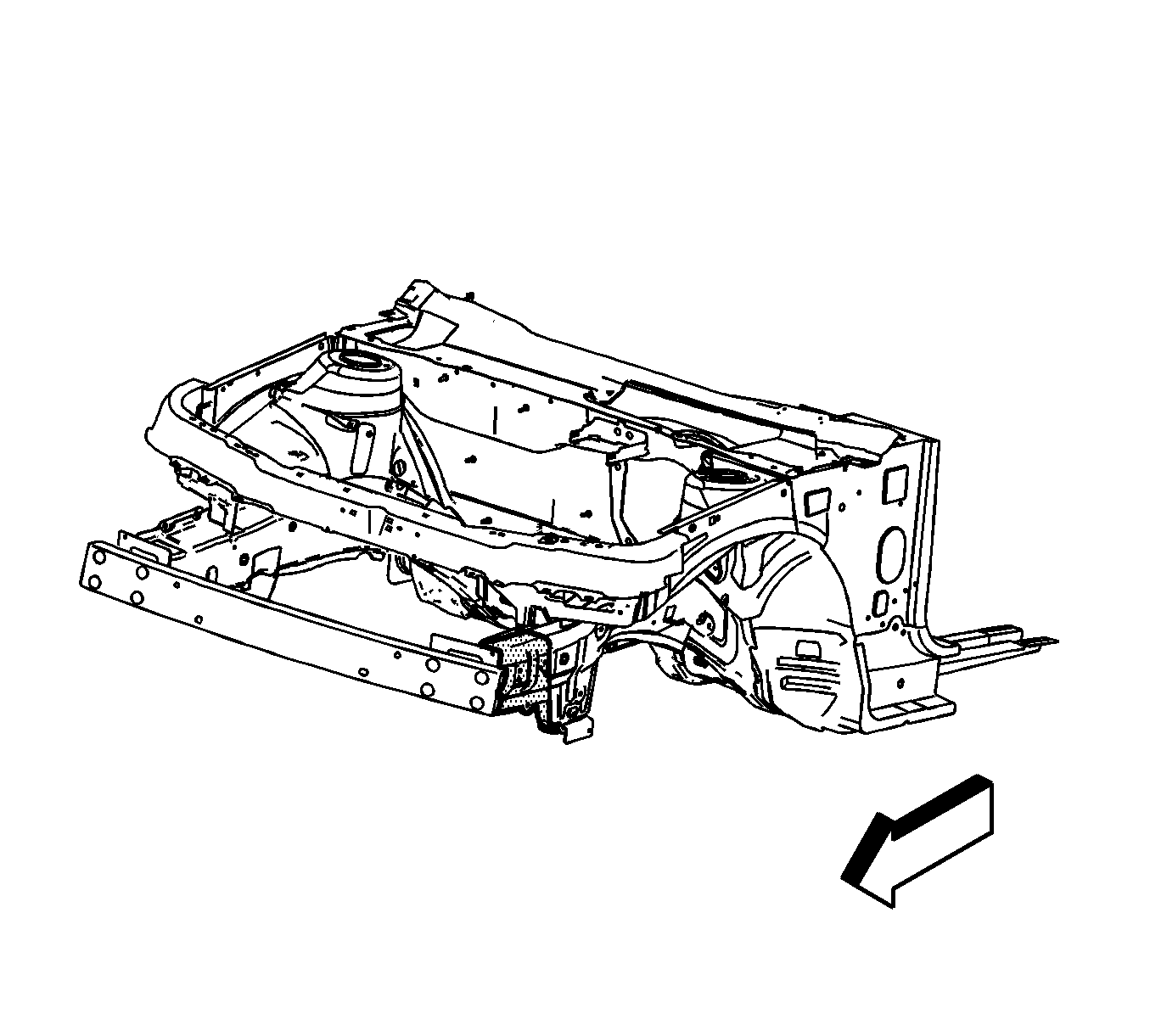
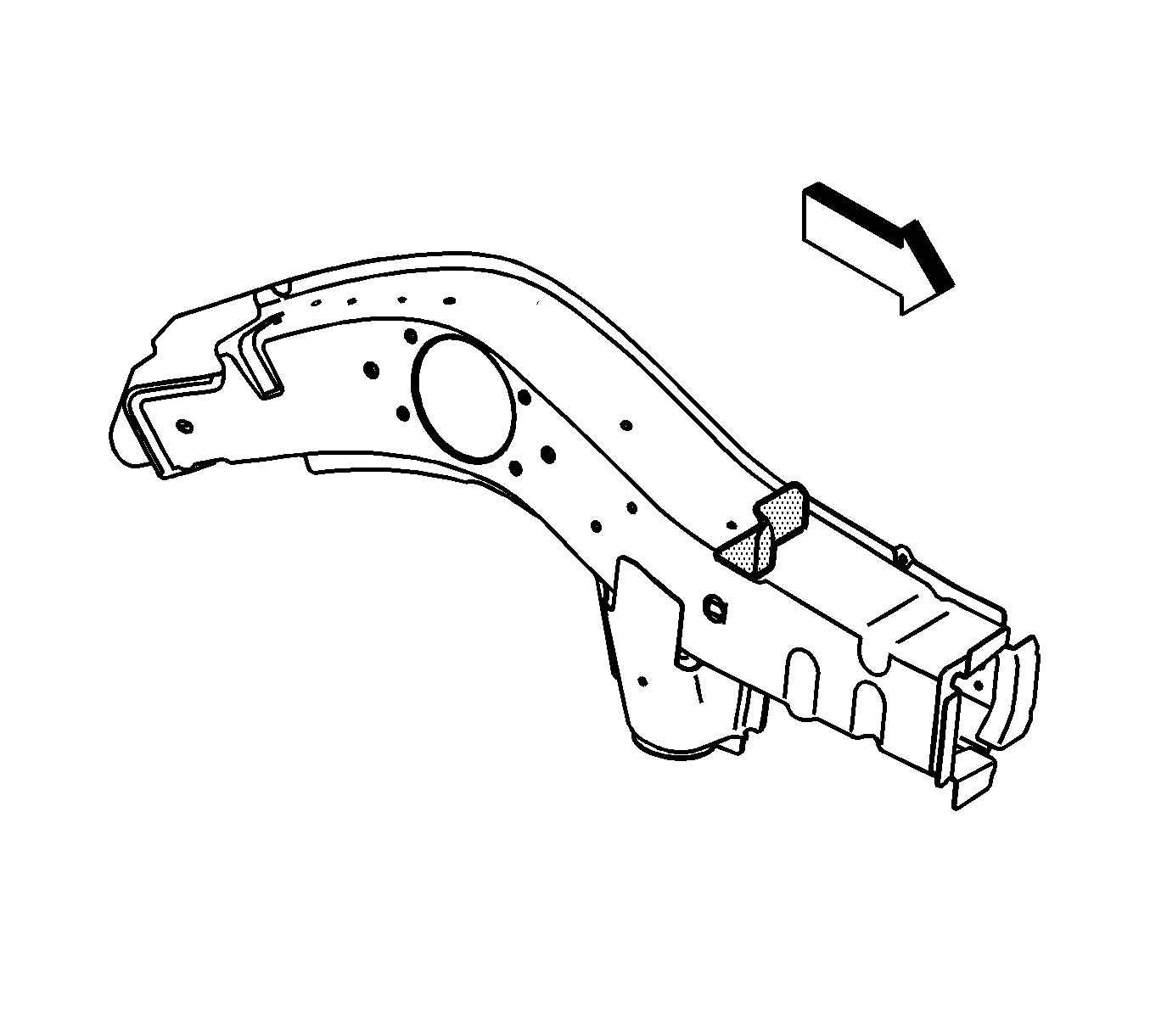
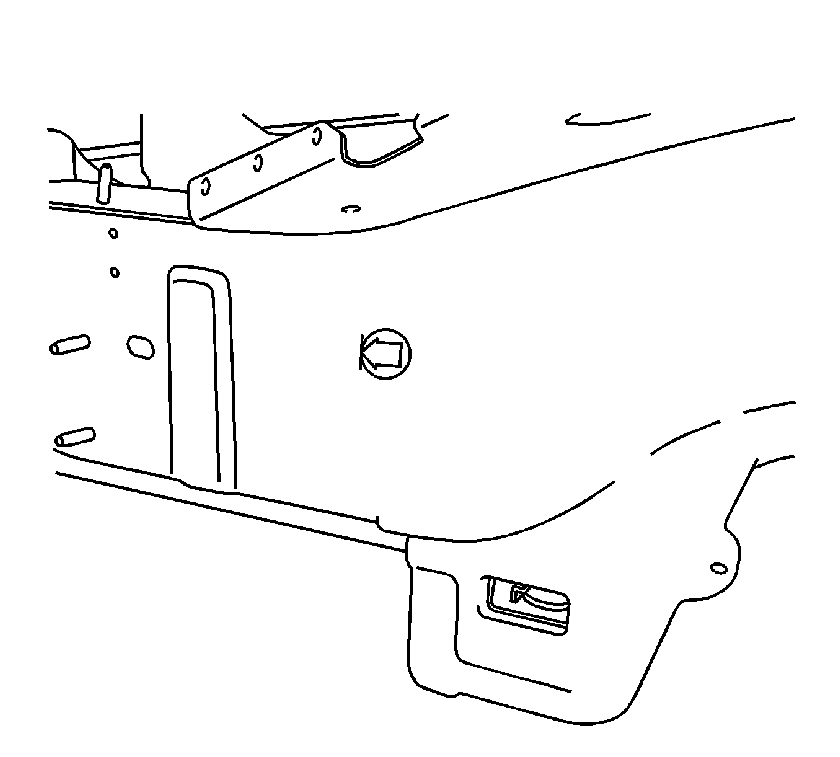
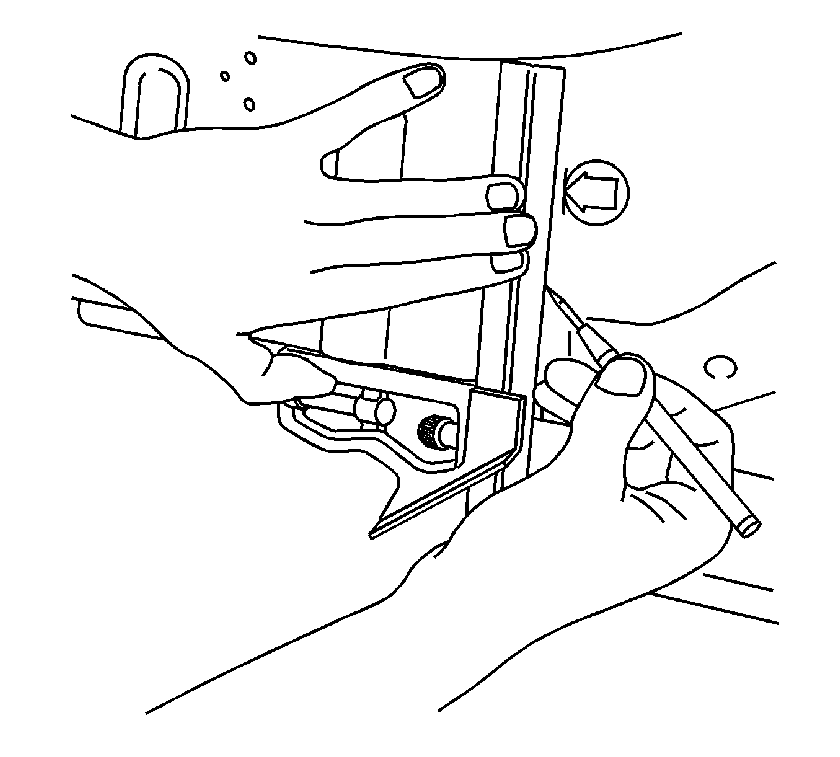
Note: Do not section the rail except where indicated.
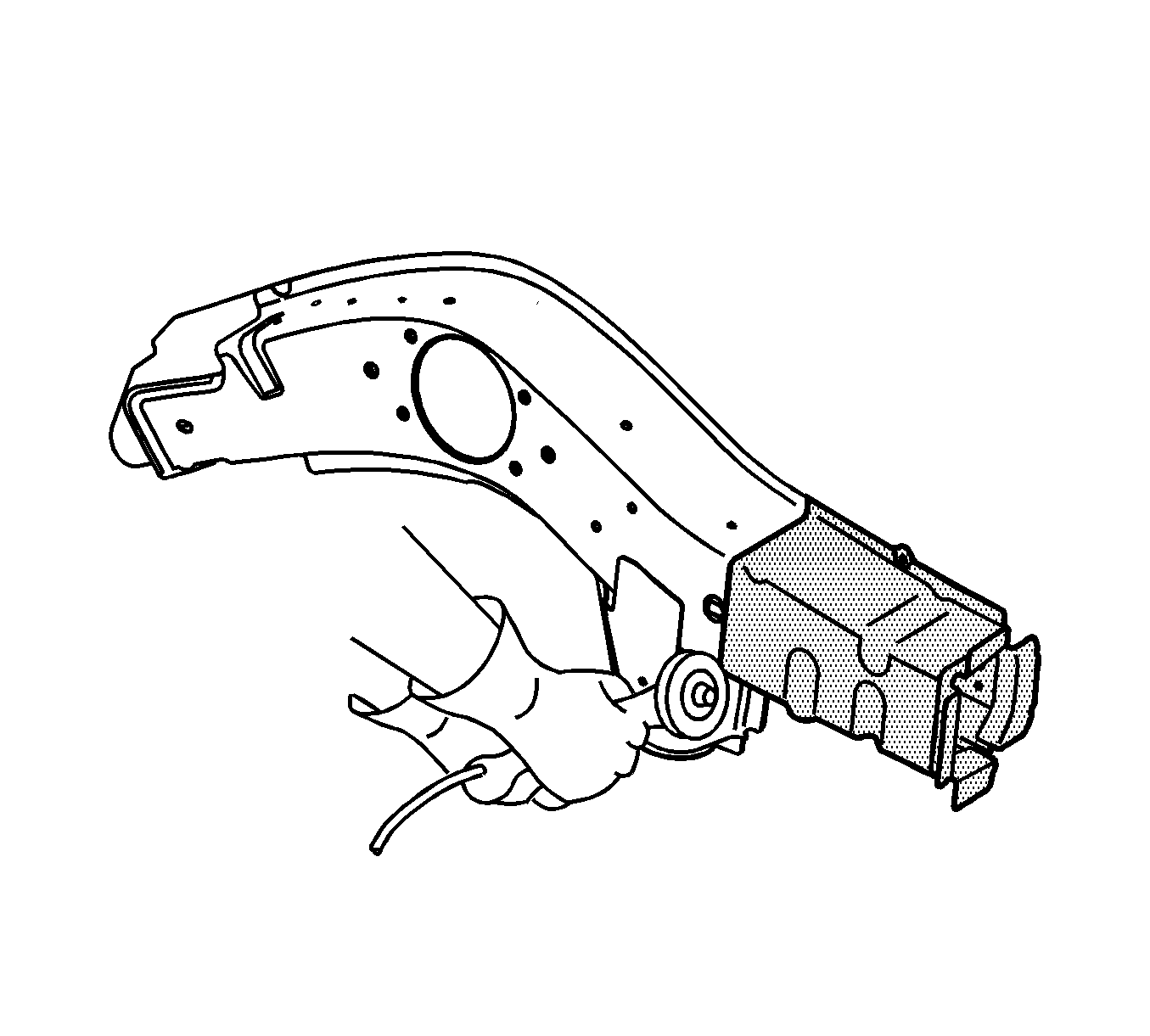
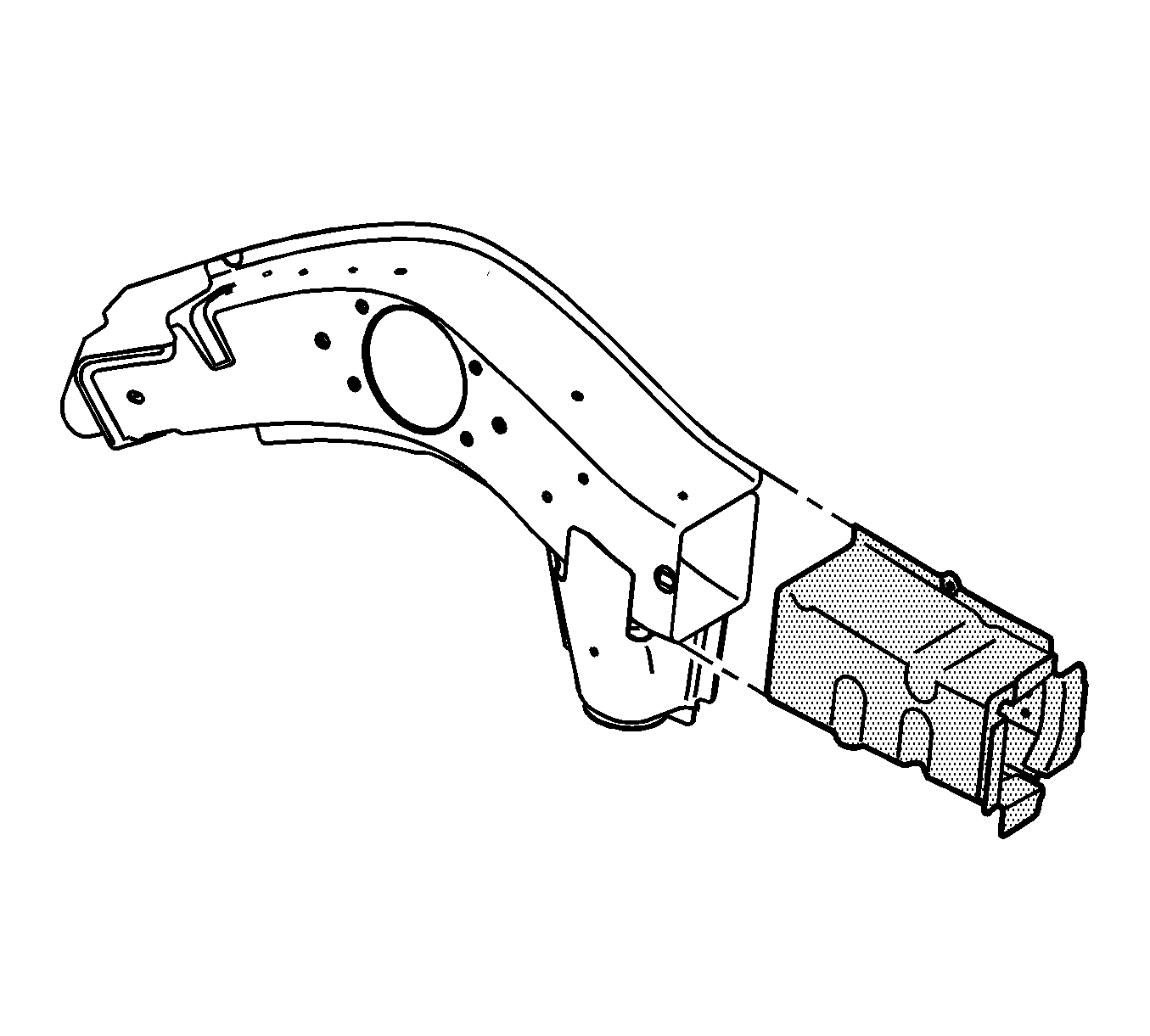
Installation Procedure
- In order to create the service part, complete the following steps:
- Cut the upper and lower inner and outer corners of the frame rail. Cut at the beginning and the end of the radius at each corner rearward 20 mm (3/4 in) to the scribe line.
- Bend each side of the rail inward by aligning a vice grip flanging tool or similar tool to the scribe line. Bend a 20 mm (3/4 in) flange inward slightly. This flange is the welding backer that will fit into the existing frame rail on the vehicle.
- Prepare the sectioning weld area as necessary for welding.
- Apply GM-approved weld-thru coating or equivalent to all mating surfaces. Refer to Anti-Corrosion Treatment and Repair.
- Insert the service rail into the undamaged frame rail of the vehicle.
- Position the front rail section using 3-dimensional measuring equipment. Clamp the service part in place.
- Tack weld the part into position.
- Inspect the service rail for proper dimensions using 3-dimensional measuring equipment.
- Stitch weld along the entire sectioning joint. Make 25 mm (1 in) welds along the seam with 25 mm (1 in) gaps between.
- Complete the stitch weld.
- Install the tie bar attach bracket.
- Clean and prepare the welded surfaces.
- Install all of the related panels and components.
- Apply the sealers and anti-corrosion materials to the repair area, as necessary. Refer to Anti-Corrosion Treatment and Repair.
- Paint the repaired area. Refer to Anti-Corrosion Treatment and Repair.
- Enable the SIR system. Refer to SIR Disabling and Enabling.
- Connect the negative battery cable. Refer to Battery Negative Cable Disconnection and Connection.
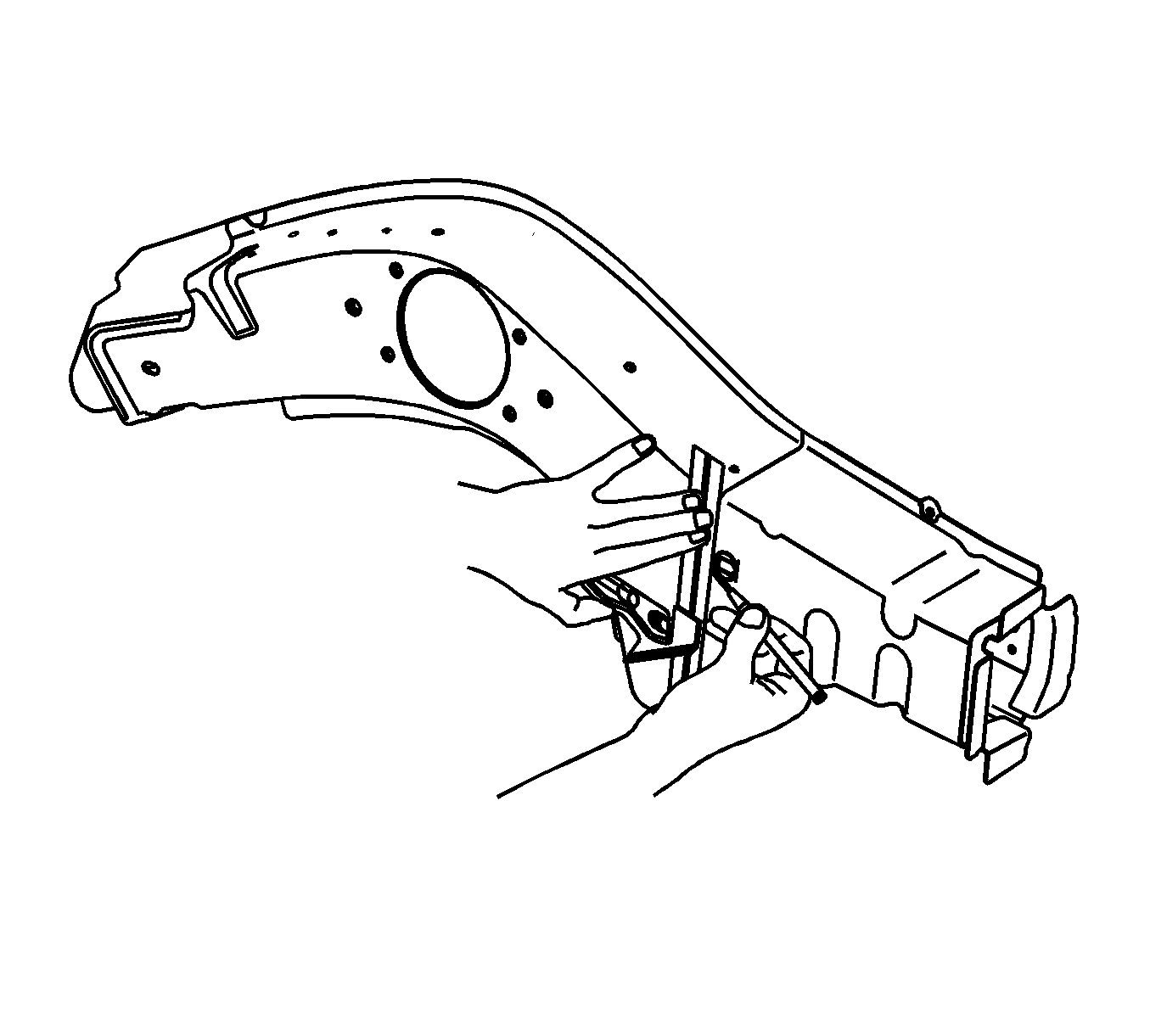
| 1.1. | At the back side of the die mark on the service part, align a sliding square or similar tool to this line and the bottom side of the front lower rail. Scribe a line completely around the frame rail. |
| 1.2. | Cut the rail at the marked located. |
| 1.3. | Remove the front portion of the rail. This is the service part. |
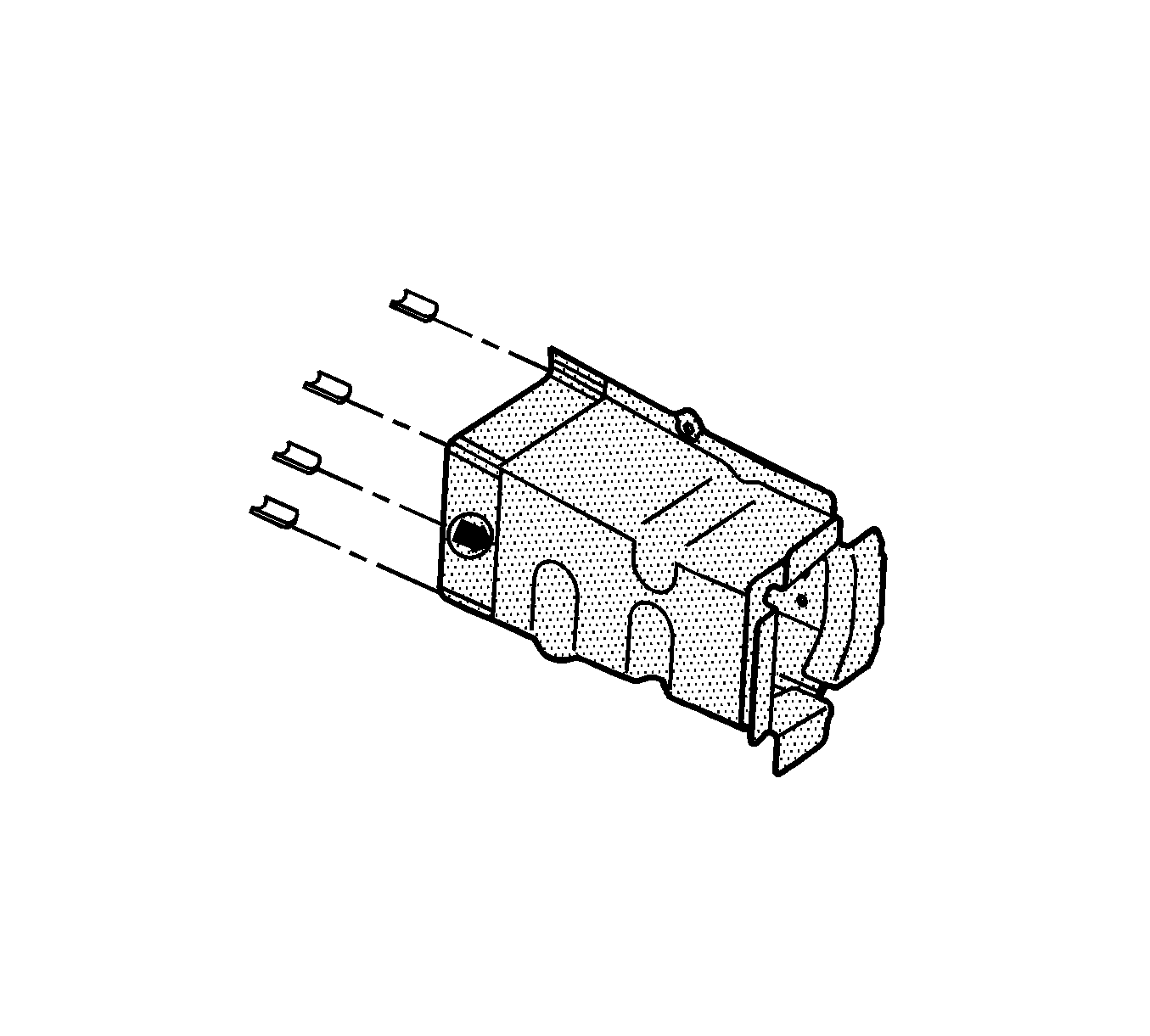
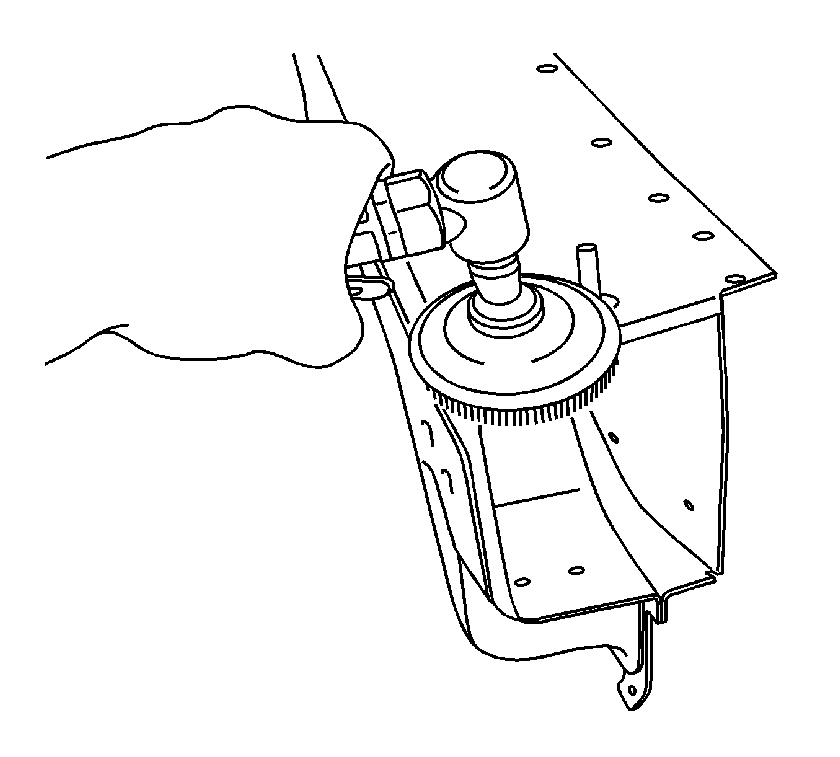
Note: Allow for a snug fit.

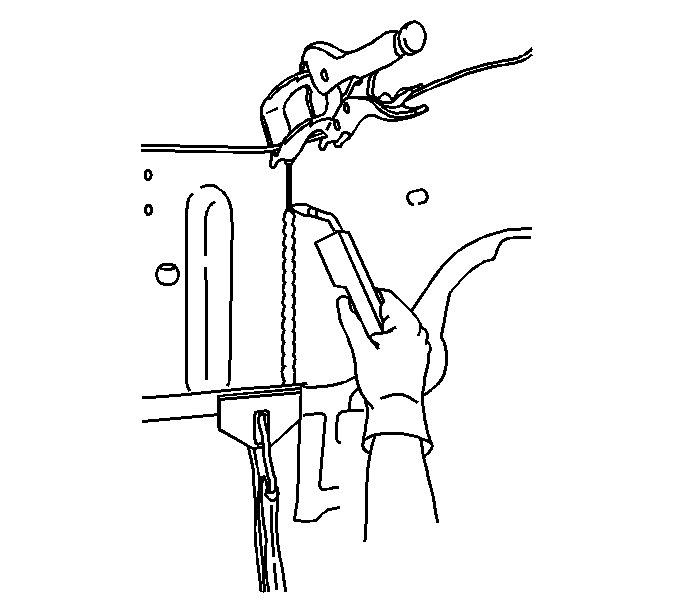
Front Compartment Front Rail Sectioning Laminated Steel Dash
Removal Procedure
Warning: Refer to Approved Equipment for Collision Repair Warning in the Preface section.
Warning: Refer to Foam Sound Deadeners Warning in the Preface section.
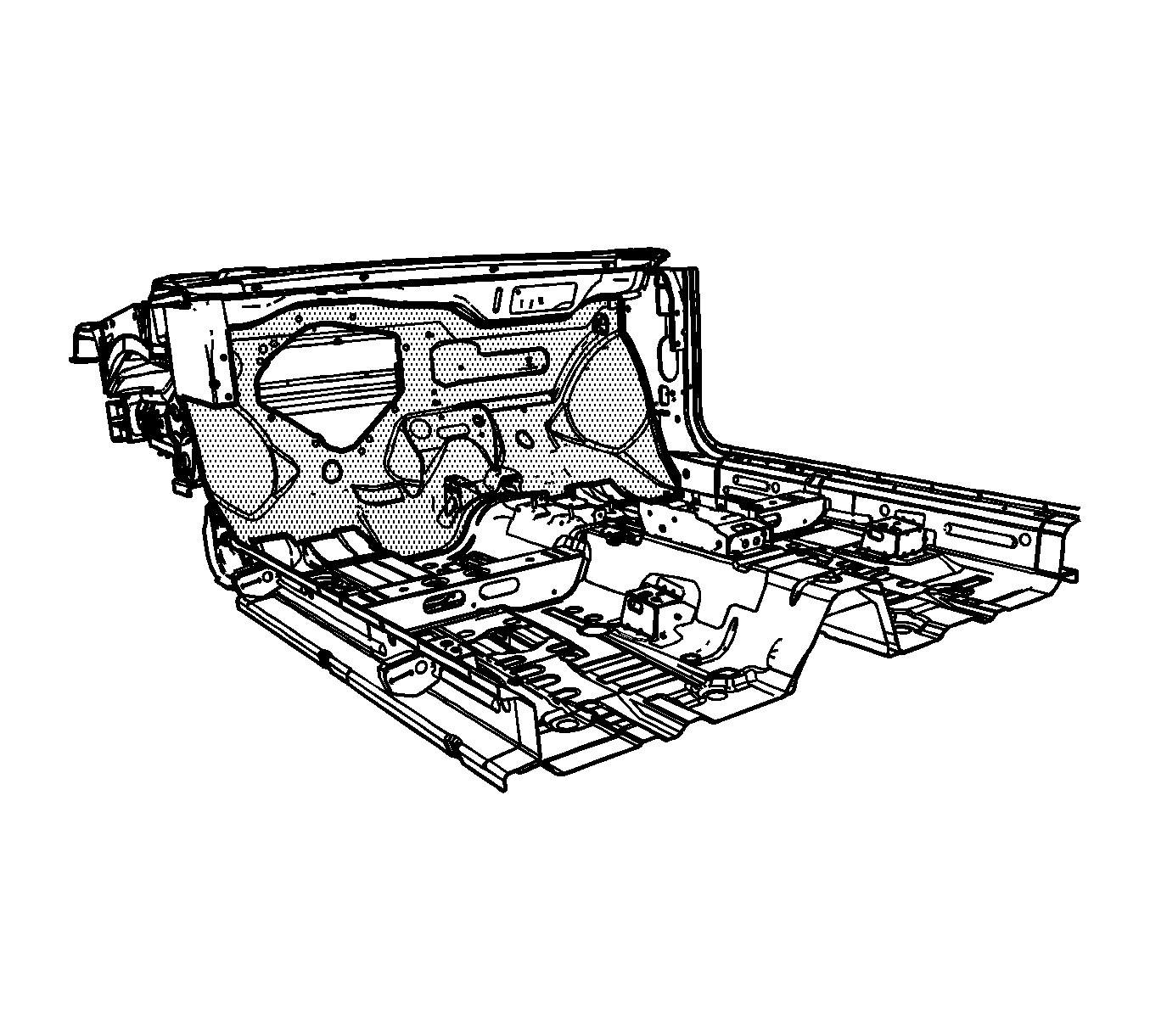
Note:
• Model year 2005 and prior vehicles are not manufactured with laminated steel in front of the dashes. Therefore the front lower rail can be MIG welded instead of the rivet and bonding process as stated in these instructions. • Failure to follow this procedure will compromise the structural integrity of the vehicle.
- Disable the SIR system. Refer to SIR Disabling and Enabling.
- Disconnect the negative battery cable. Refer to Battery Negative Cable Disconnection and Connection.
- Remove all related panels and components.
- Repair as much of the damage as possible.
- Remove the sealers and the anti-corrosion materials from the repair area, as necessary. Refer to Anti-Corrosion Treatment and Repair.
- Note the number and location of the factory welds for installation of the full rail service part.
- Using an 8-mm (5/16-in) spot weld remover, locate and drill out the factory welds on the weld flange connecting the lower rail to the dash panel.
- From the passenger compartment, locate and drill out the remaining factory weld.
- Remove the full rail.
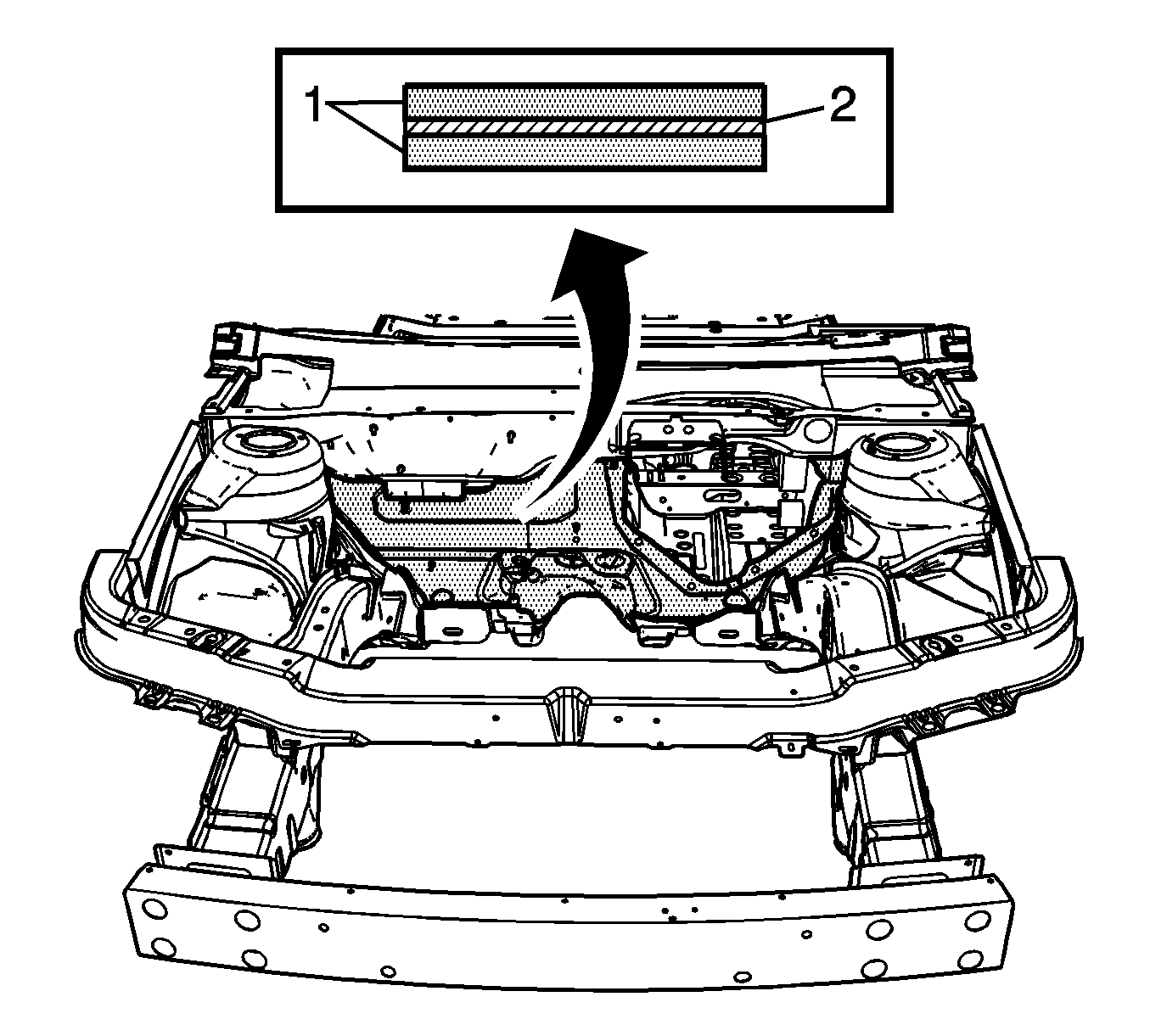
Note: The front of the dash panel is formed from laminated steel. This steel is constructed by bonding 2 pieces of cold rolled steel (1) with a viscoelastic layer of adhesive (2). Metal inert gas (MIG) welding laminated steel does not meet GM Corporate standards for structural integrity. As an alternative, all factory welds will be replaced by using the rivet and adhesive bond method described in the installation portion of this procedure. The rivet and adhesive bond method must only be used in the areas as described in this procedure.
Warning: Refer to Collision Sectioning Warning in the Preface section.
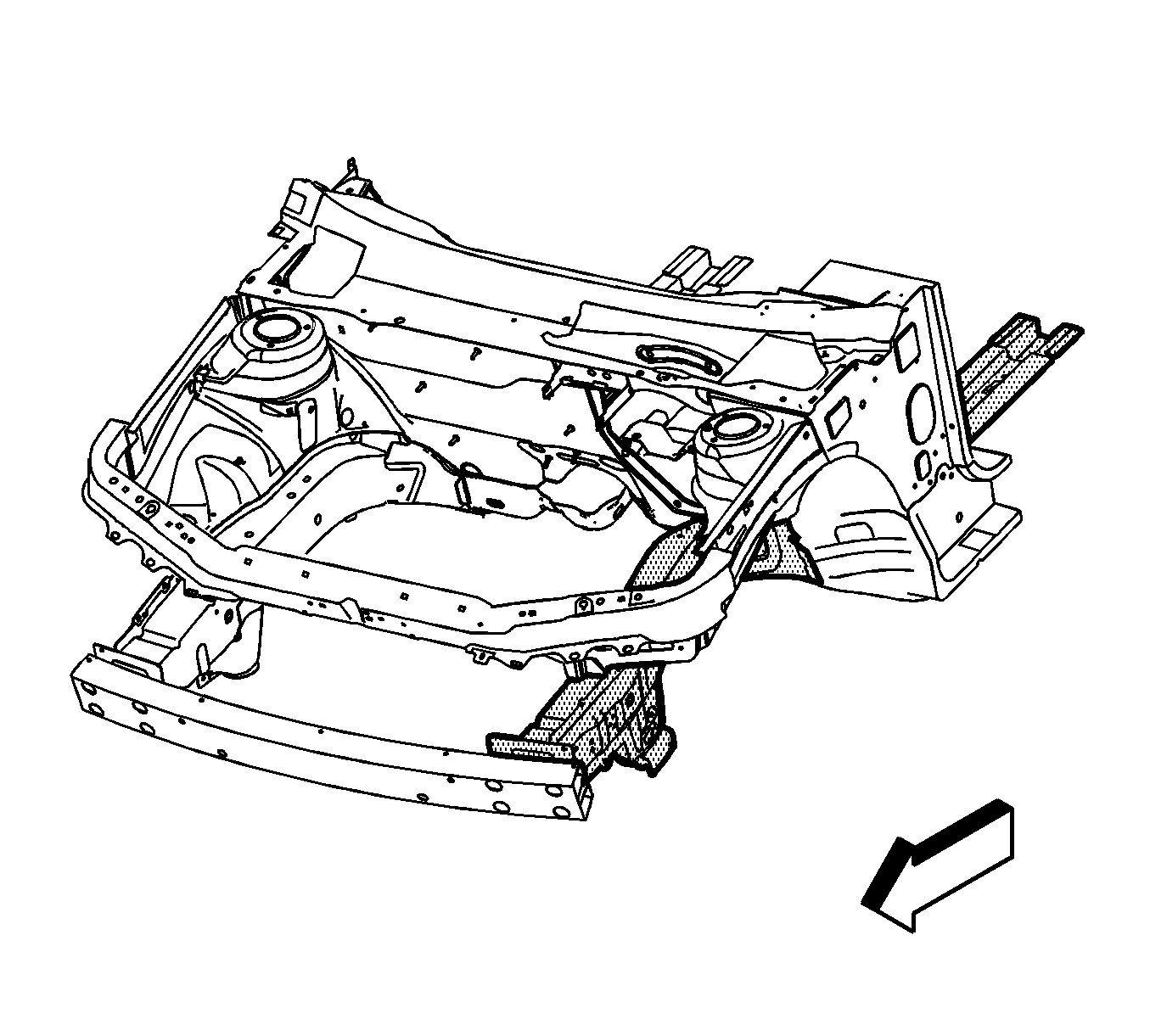
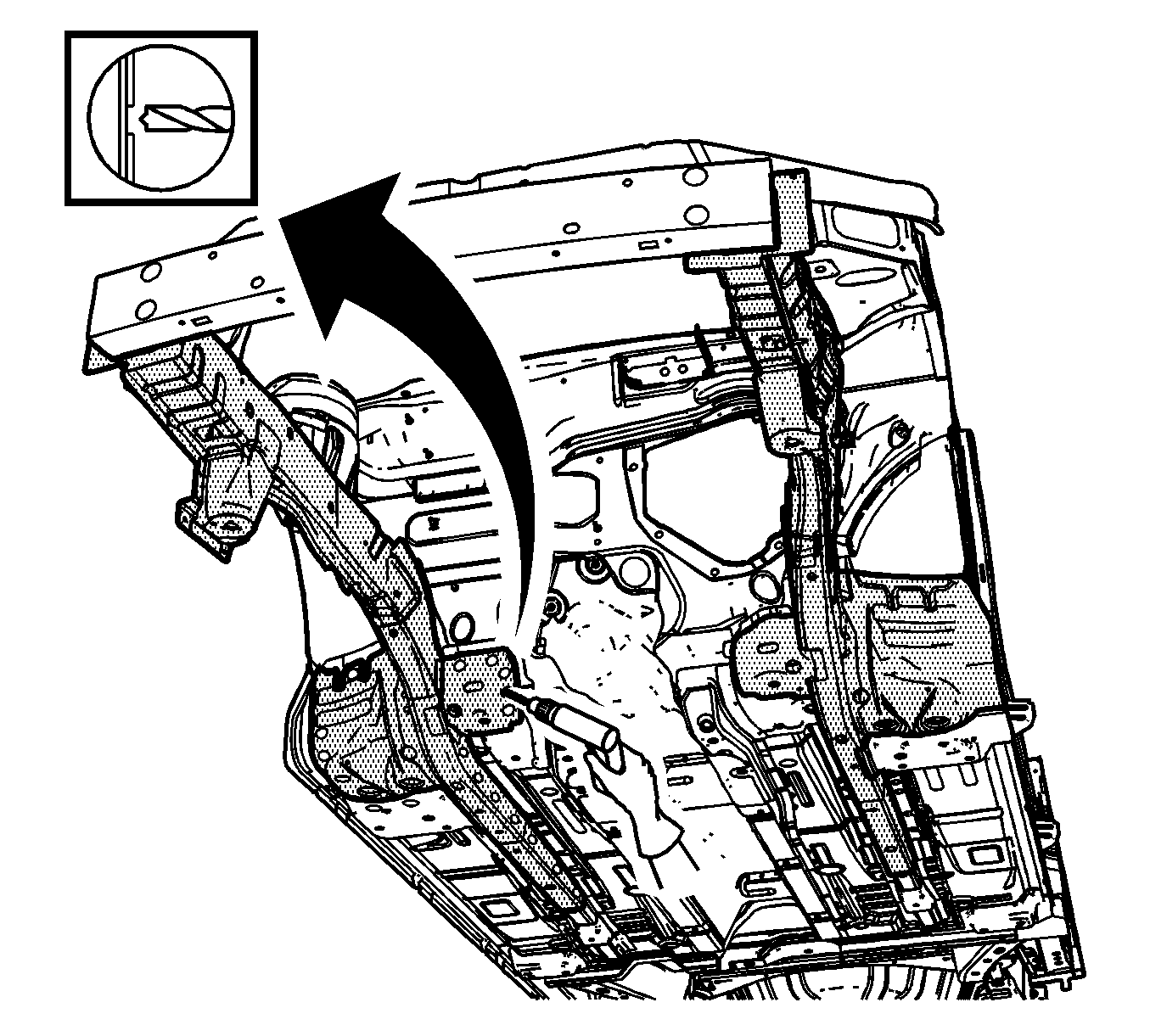
Note: Drill through the rail flange only. Do NOT drill into the dash panel or the inner reinforcements.
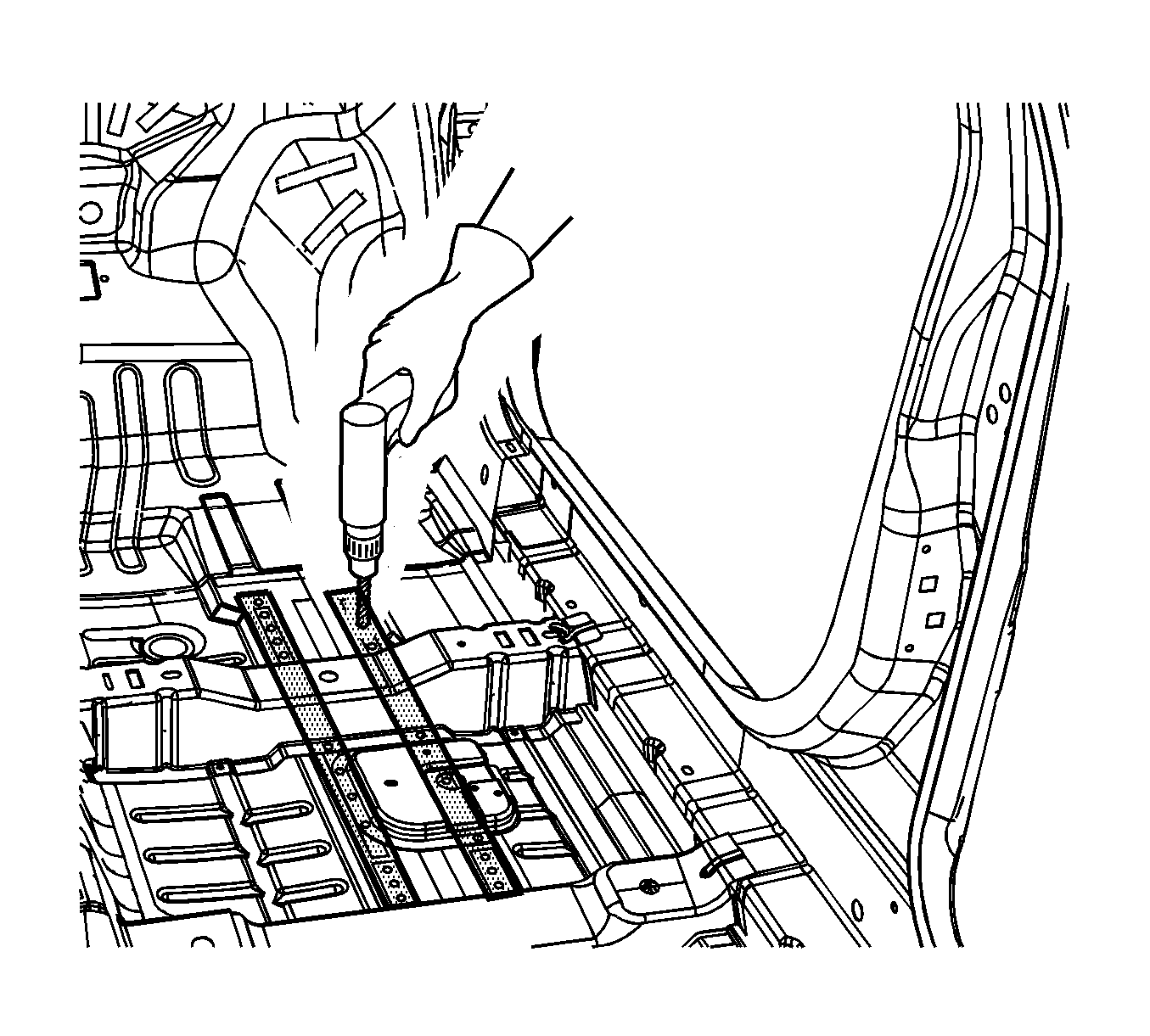
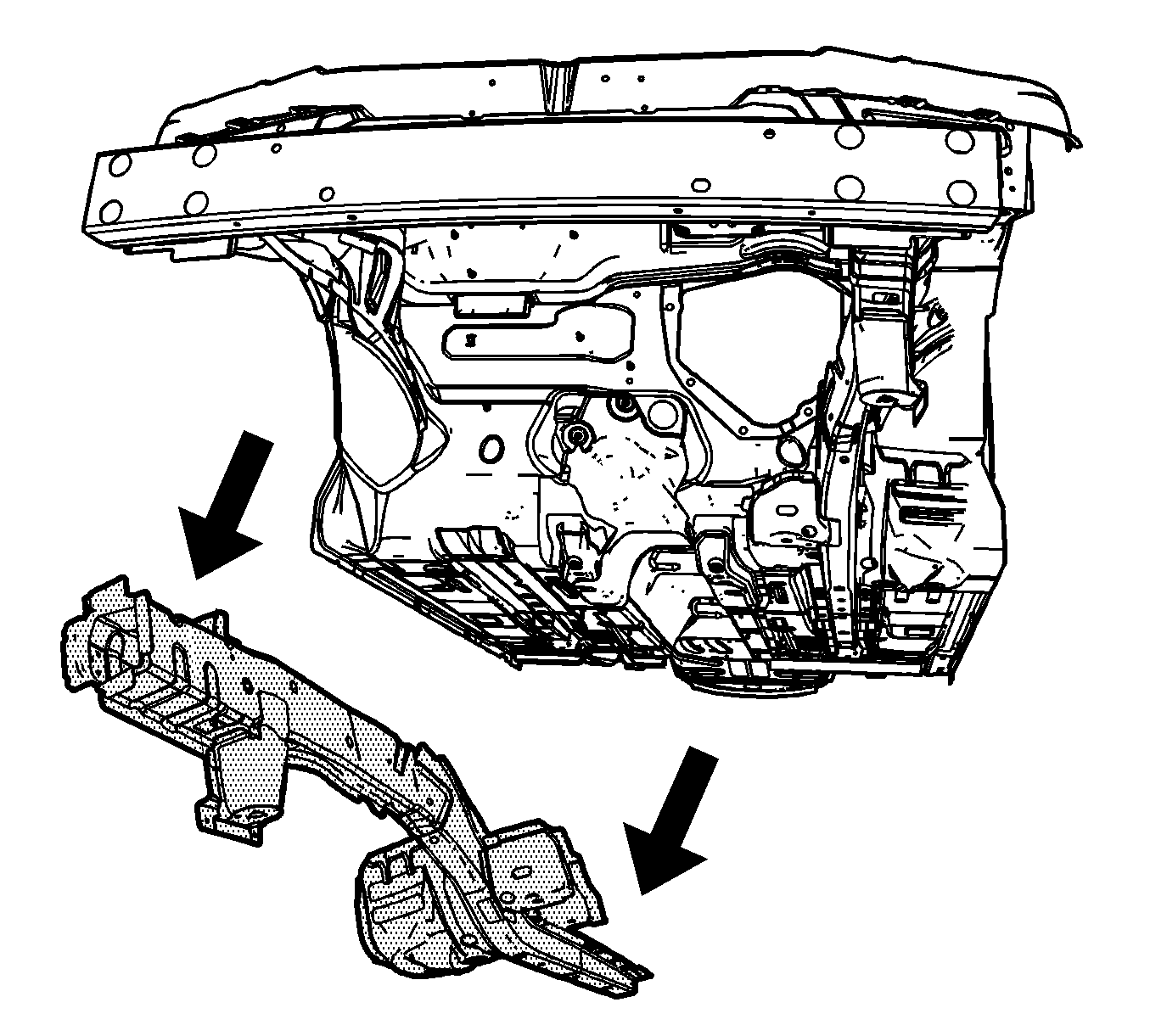
Installation Procedure
- Drill 8-mm (5/16-in) plug weld holes in the service front lower rail in the location noted from the original rail.
- Prepare the plug weld mating surfaces, as necessary.
- Apply GM-approved weld-thru coating or equivalent to all mating surfaces. Refer to Anti-Corrosion Treatment and Repair.
- Position the service rail to the vehicle using 3-dimensional measuring equipment.
- Clamp the rail in place.
- Using a 7-mm (17/64-in) bit, drill the rivet attachment holes through the service rail and the dash panel in the exact locations as noted from the factory rail.
- Remove the service rail.
- Prepare the plug weld mating surfaces, as necessary.
- Apply GM-approved weld-thru coating or equivalent to the plug weld mating surfaces. Refer to Anti-Corrosion Treatment and Repair.
- Prepare the bond mating areas by grinding the body mating and the service part flanges to bare steel. Do NOT damage the corners or thin the metal during the grinding process.
- Clean the mating surfaces.
- Apply a 3-6 mm (1/8 to 1/4 in) bead of metal panel bonding adhesive GM P/N 12378567 (Canadian P/N 88901675) or equivalent to both of the mating surfaces.
- Using a small acid brush, spread a coat of adhesive to both of the mating surfaces. Cover all of the bare metal to ensure corrosion protection.
- Apply a 3-6 mm (1/8 to 1/4 in) bead of metal panel bonding adhesive GM P/N 12378567 (Canadian P/N 88901675) or equivalent to the mating surface of the service rail.
- Position the service rail to the vehicle using 3-dimensional measuring equipment.
- Clamp the rail in place.
- Install the 9 mm (11/32 in) long rivets so that the rivet head contacts the passenger compartment side of the dash.
- Install the 14-mm (17/32-in) long rivet so that the rivet head contacts the passenger compartment side of the dash, extending through the front rail and through the rail side extension.
- Remove the excess adhesive from the rail area.
- Plug weld the remaining holes accordingly.
- Clean and prepare all of the welded surfaces.
- Install the front wheelhouse assembly. Refer to Front Wheelhouse Replacement.
- Install the radiator support assembly. Refer to Upper Rail Replacement.
- Apply the sealers and anti-corrosion materials to the repaired area, as necessary. Refer to Anti-Corrosion Treatment and Repair.
- Paint the repaired area. Refer to Basecoat/Clearcoat Paint Systems.
- Install all of the related panels and components.
- Connect the negative battery cable. Refer to Battery Negative Cable Disconnection and Connection.
- Enable the SIR system. Refer to SIR Disabling and Enabling.
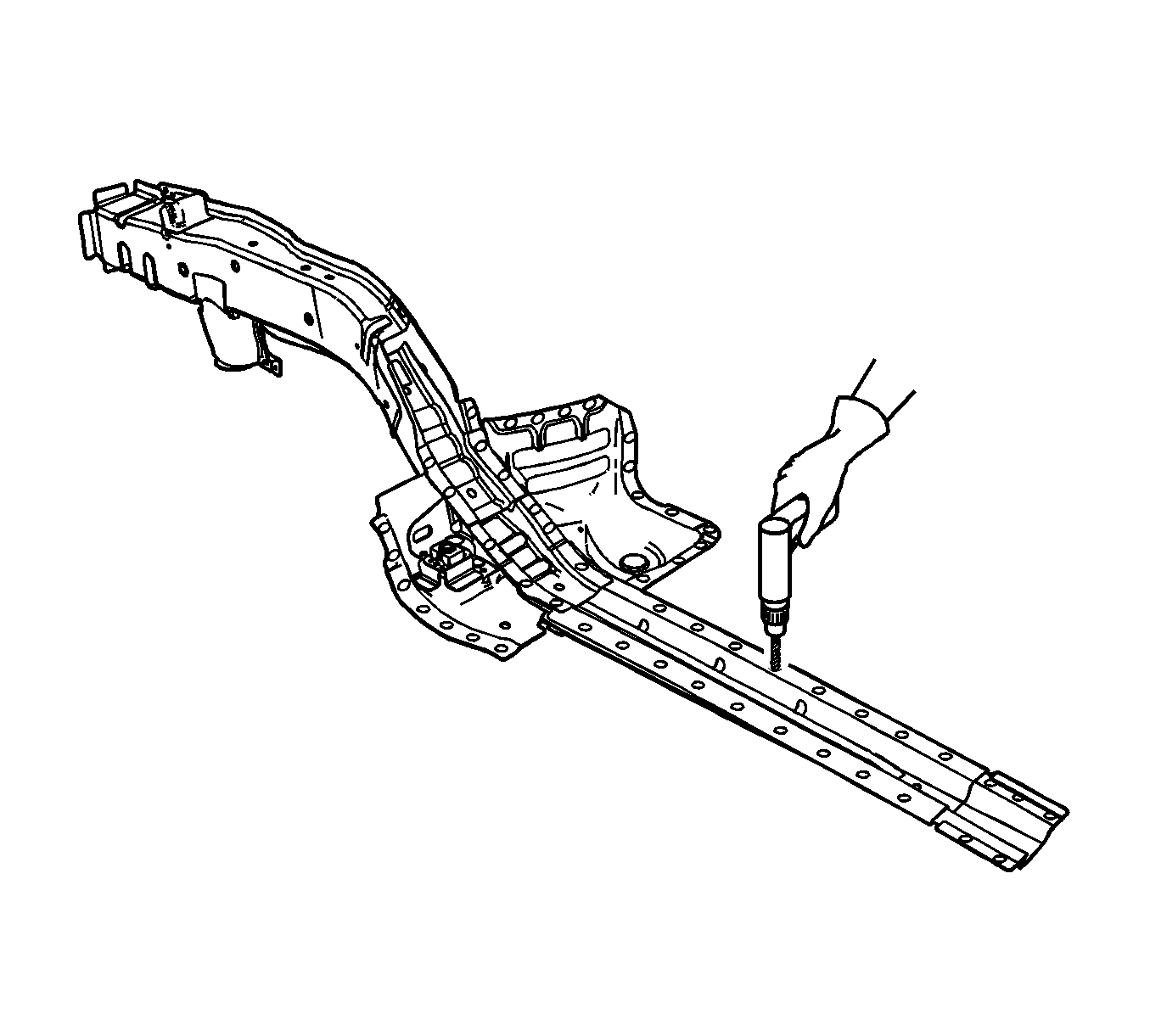
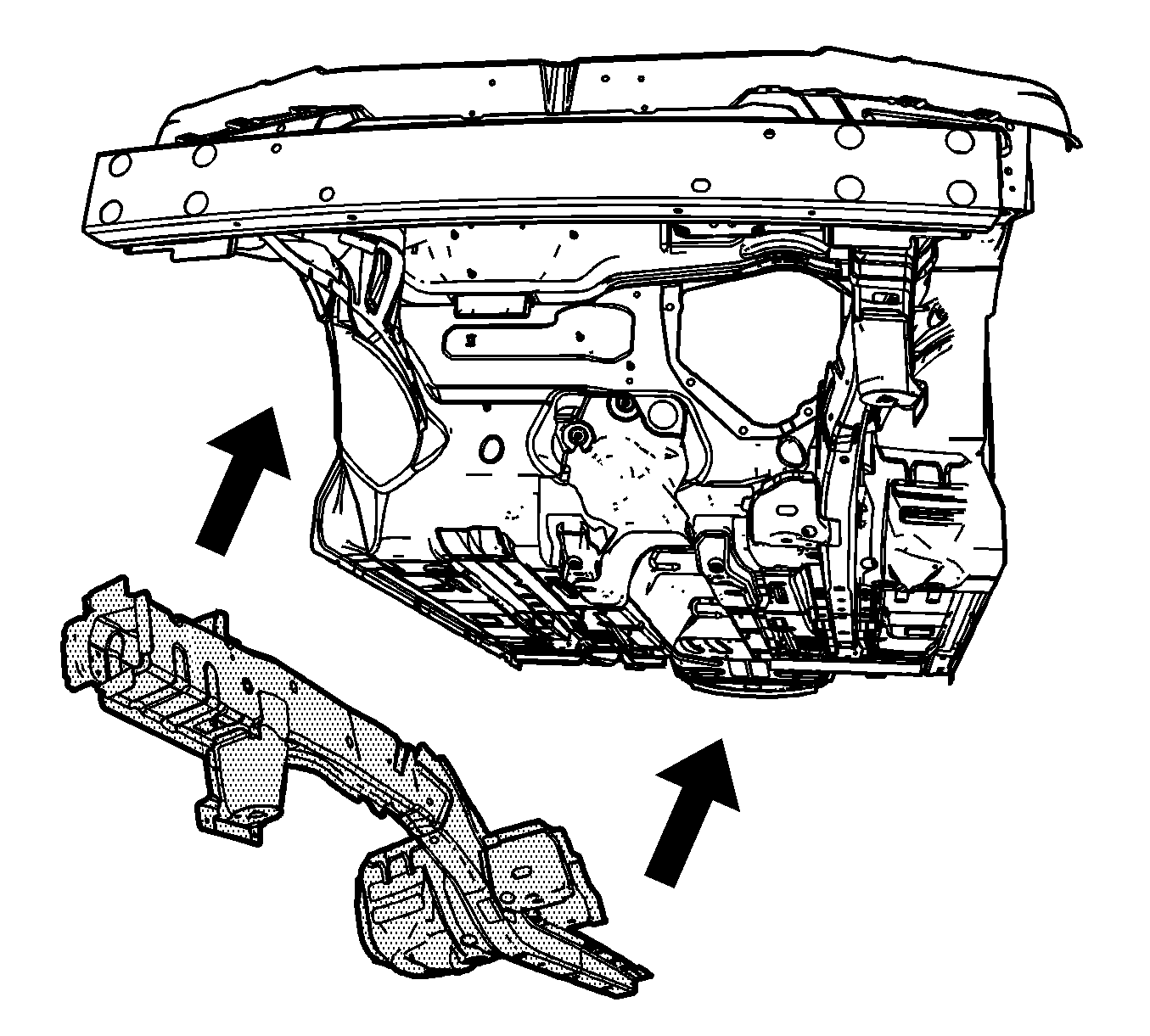
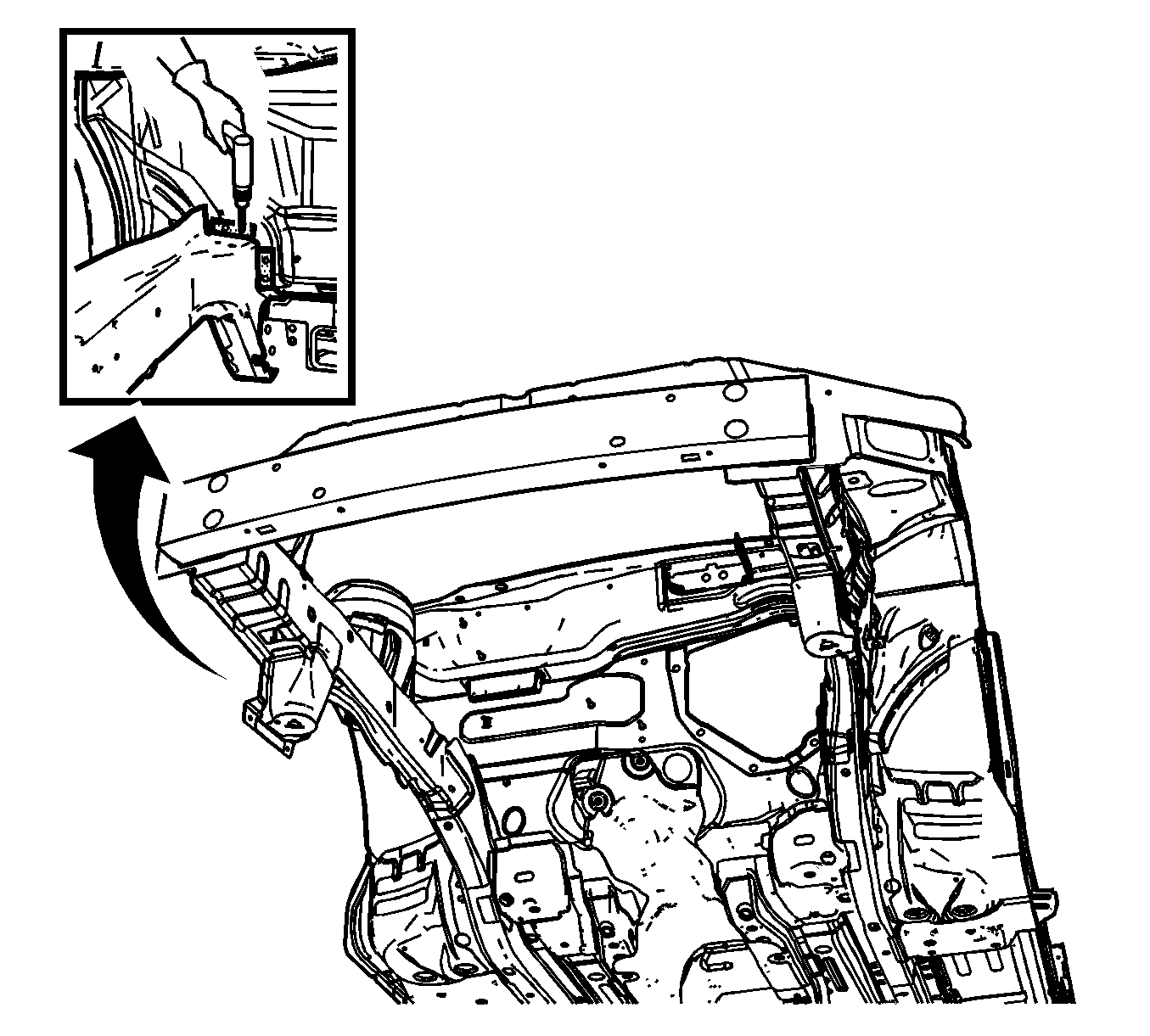
Note: If the location of the original plug weld holes cannot be determined, space the plug weld holes every 40 mm (1.5 in) apart.
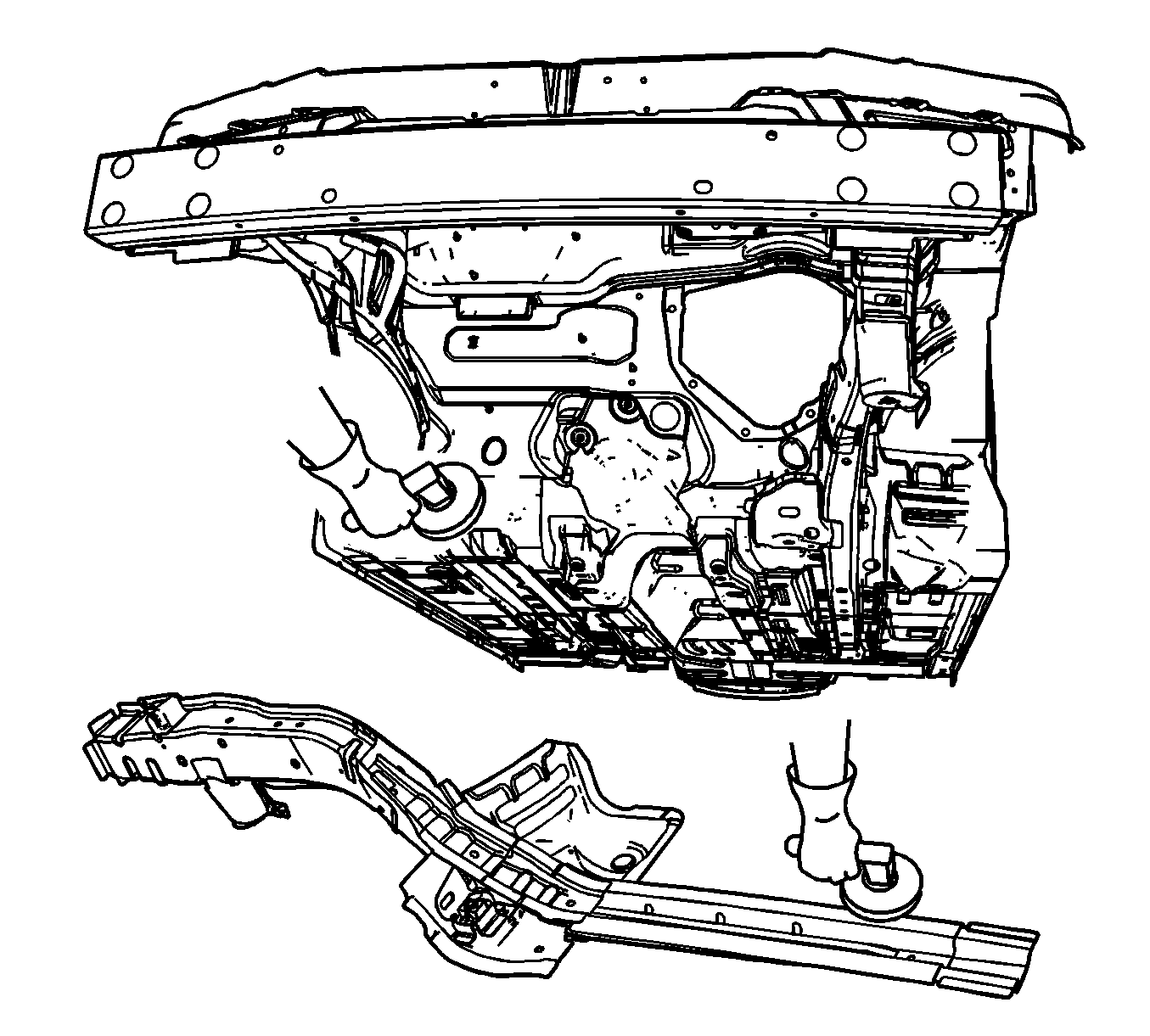
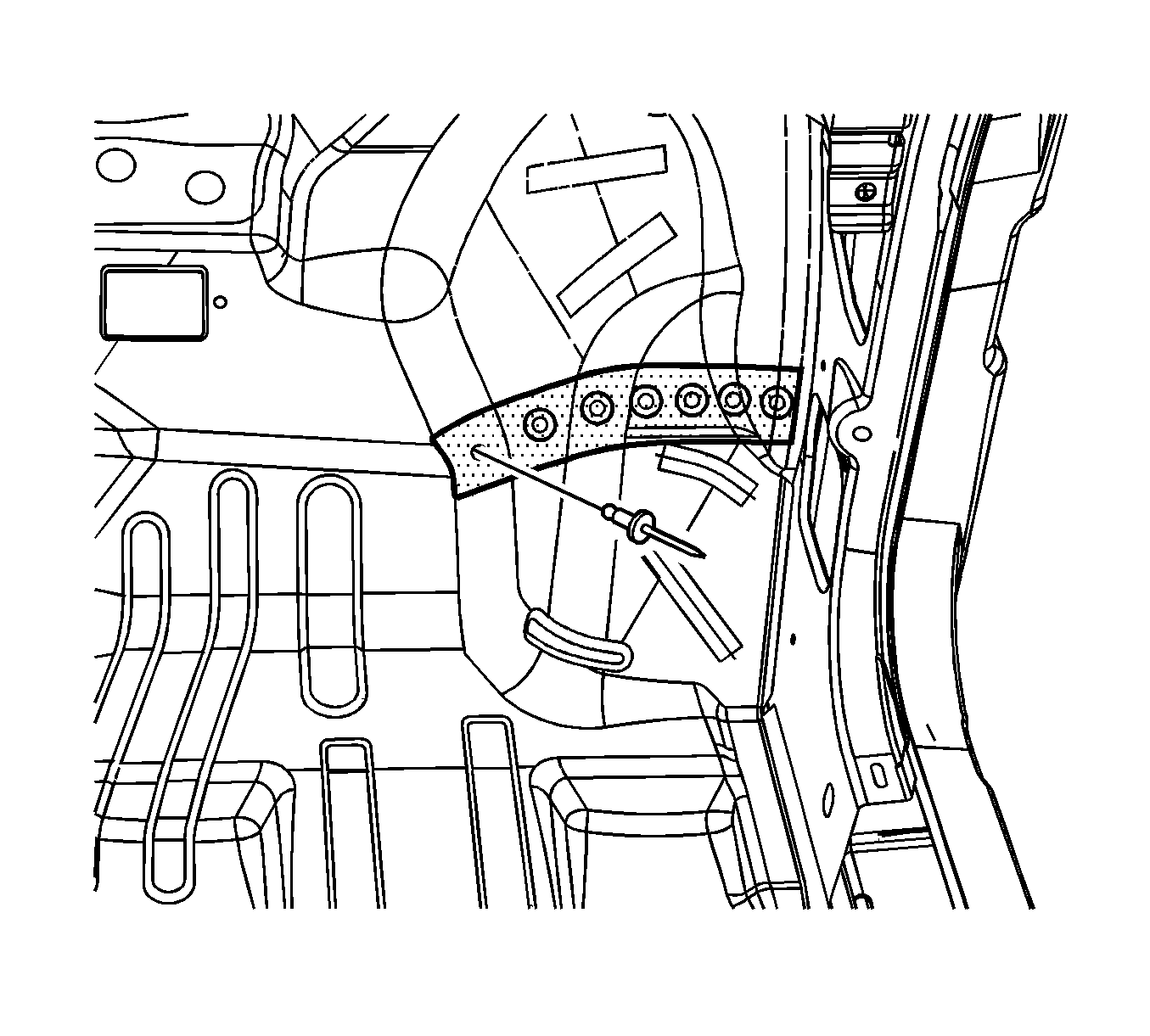
Note:
• Do NOT allow the adhesive to cure prior to installation of the front rail side extension. • Note the necessary location for installation of a 14-mm (17/32-in) long rivet.
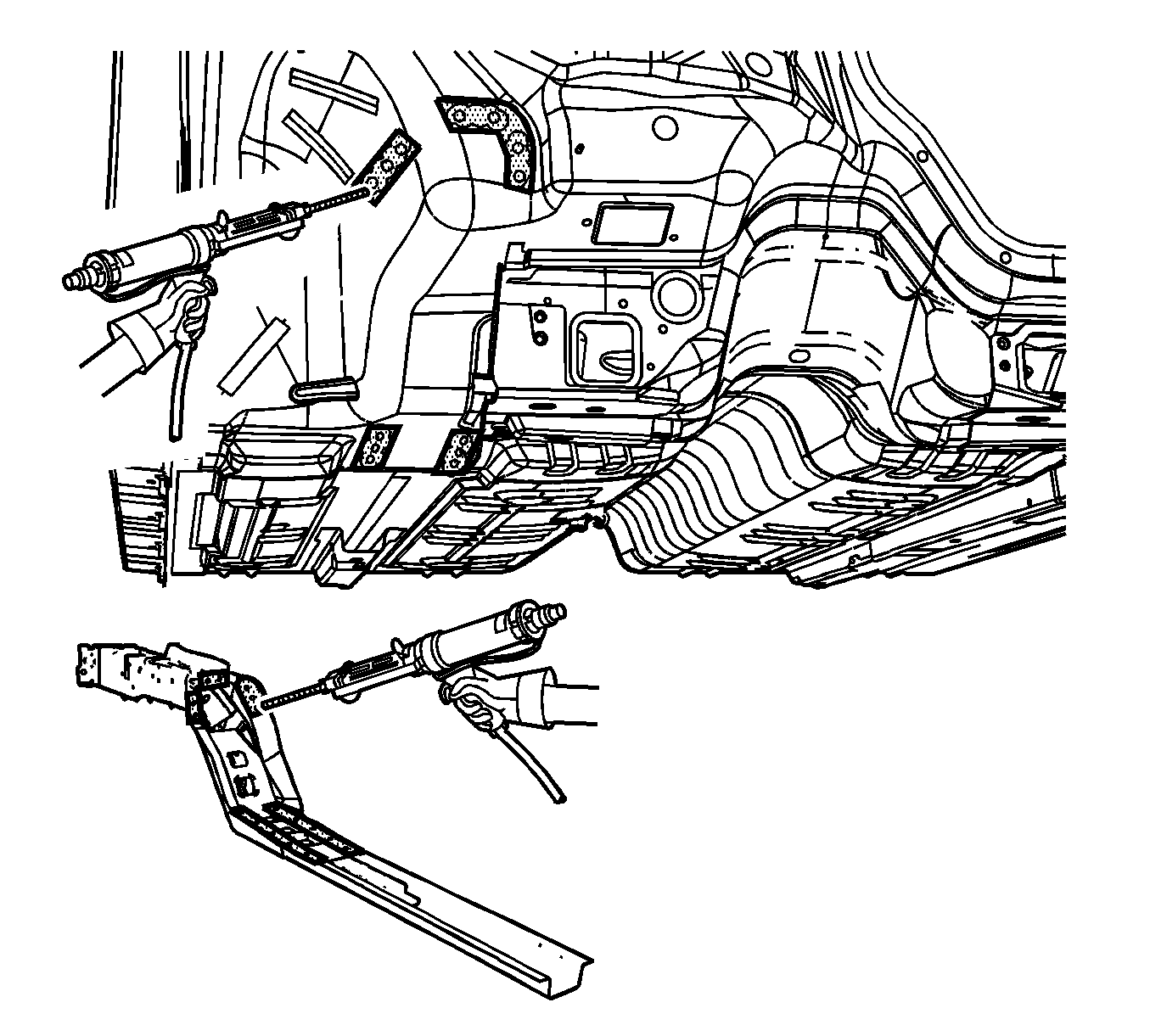
Note: The adhesive has a 40-50 minute working time. Do NOT allow the adhesive to cure prior to installing the service rail.
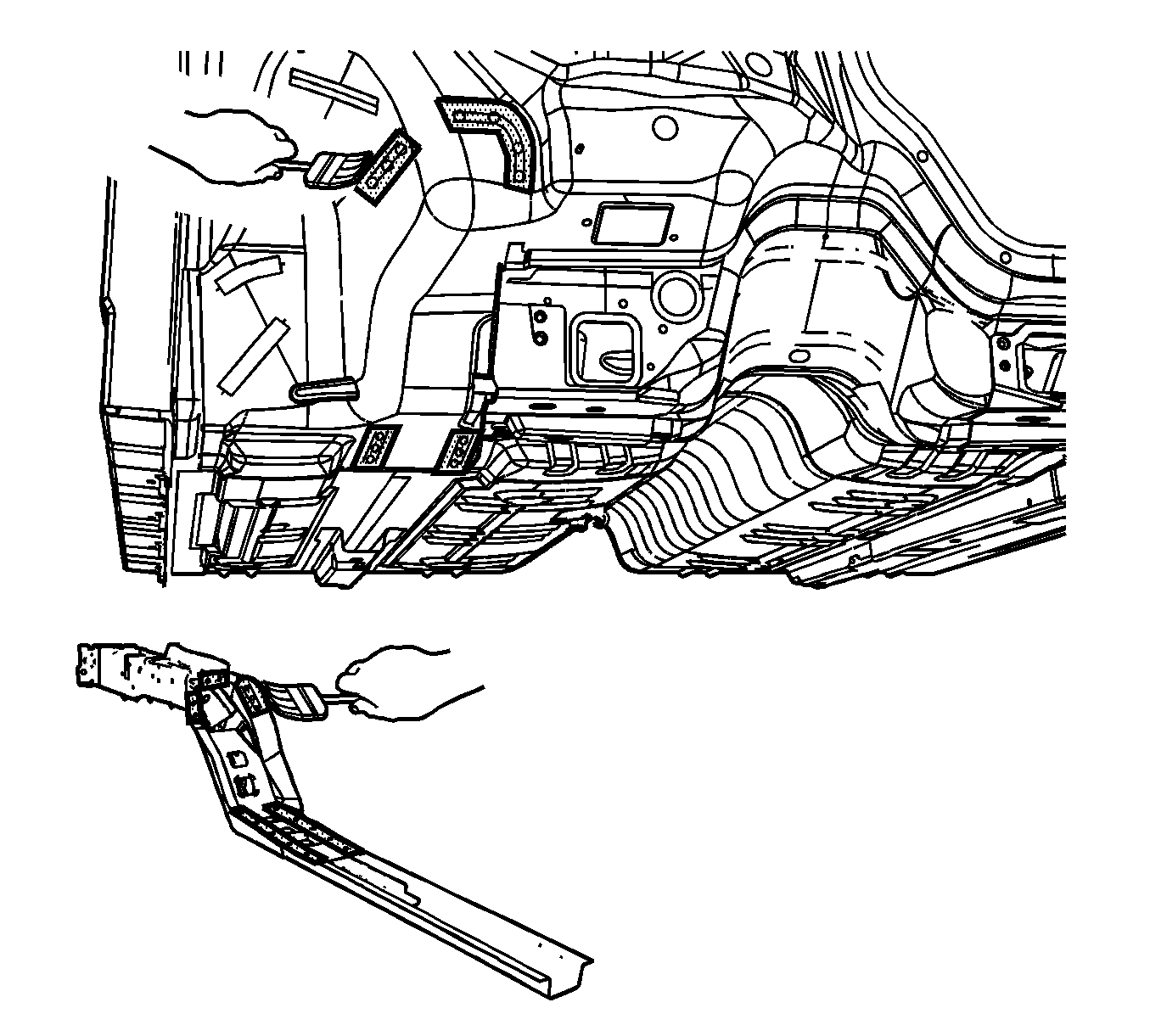
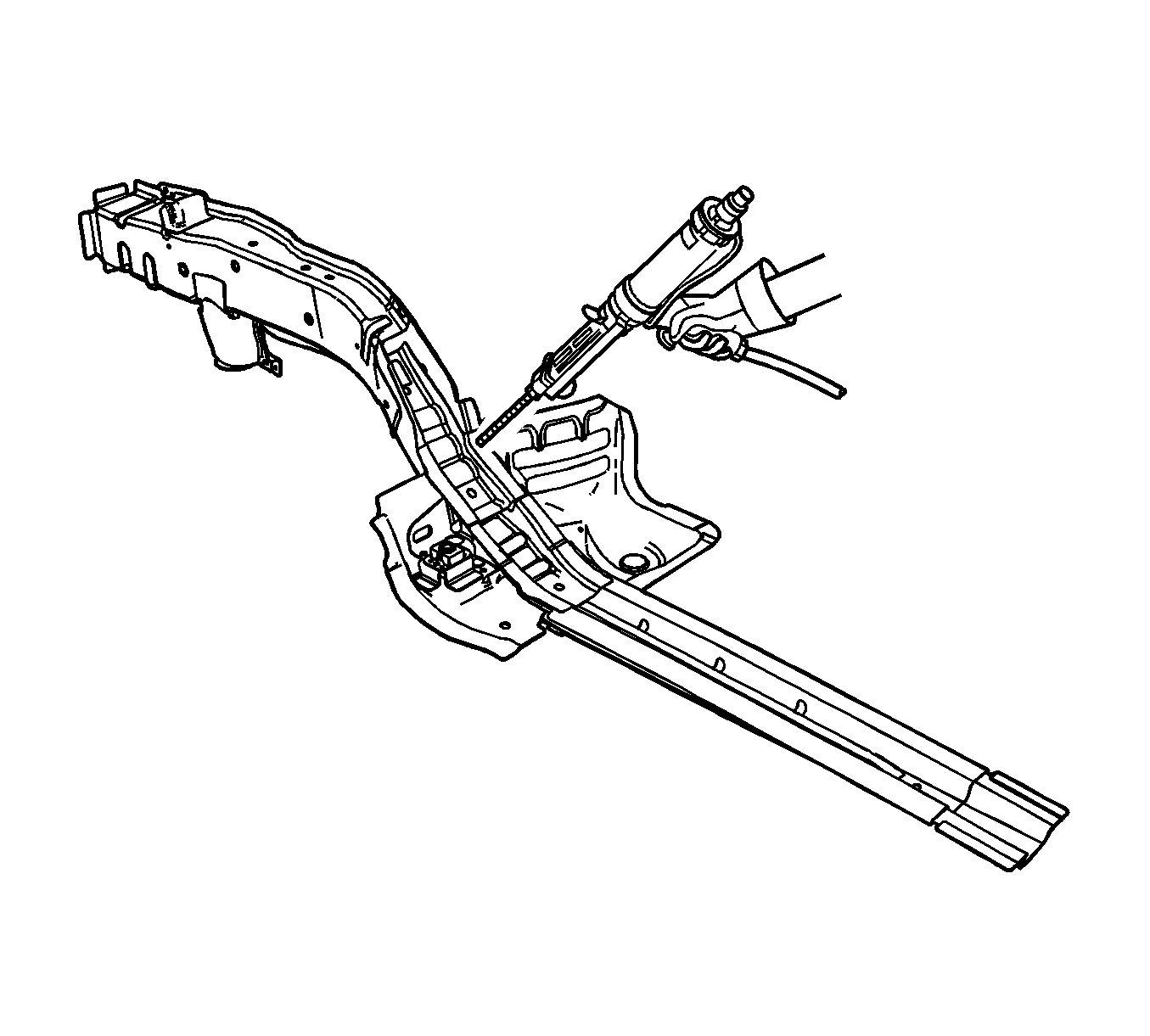

Note: Do NOT pull the rail off of the dash after adhesion. To align the parts, slide the rail against the front of the dash.
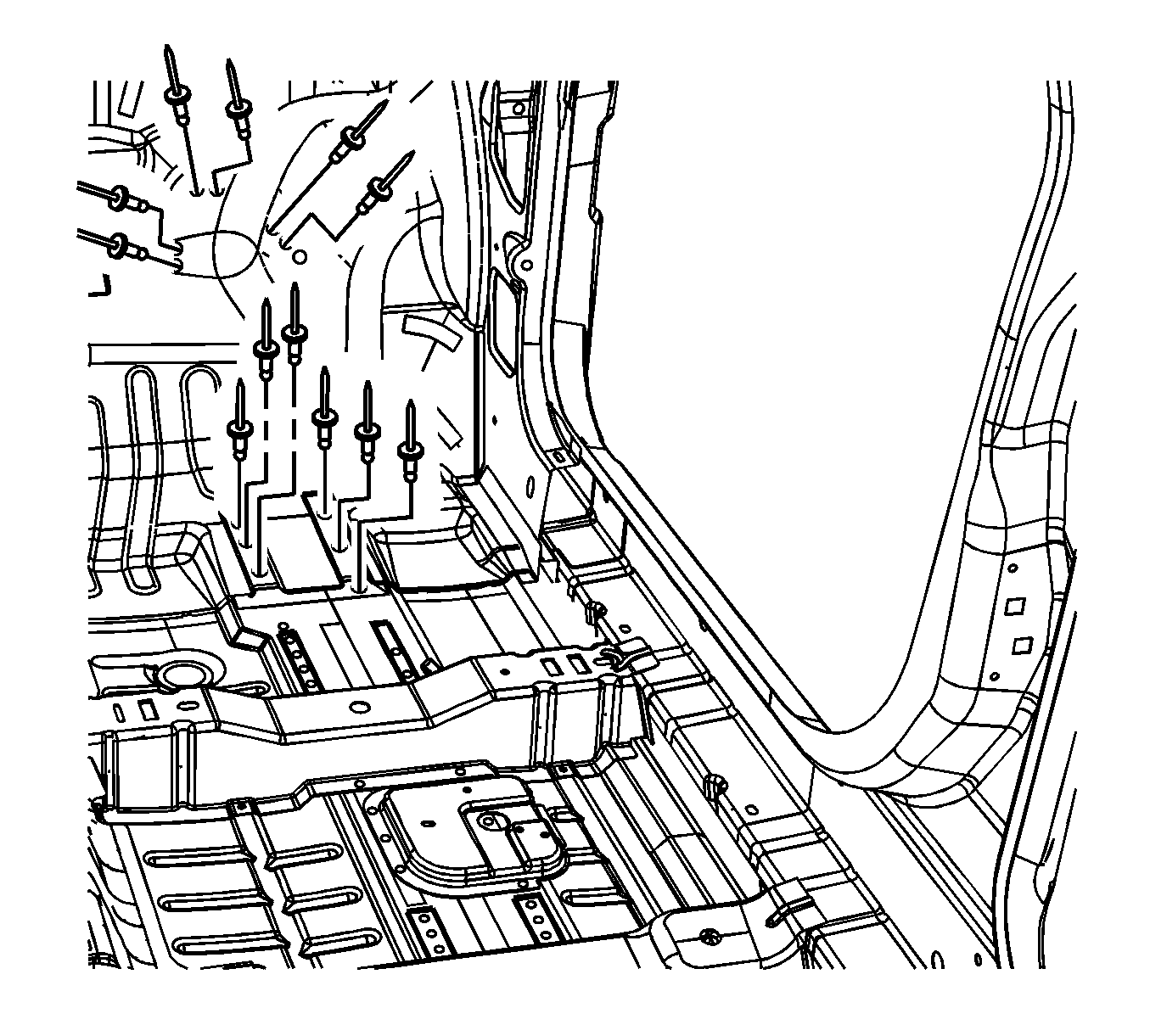
Note: Verify proper positioning of the service rail prior to riveting and welding.
